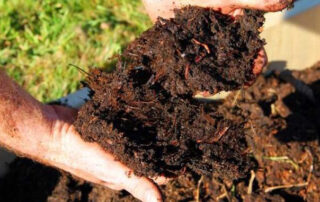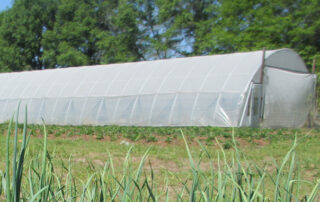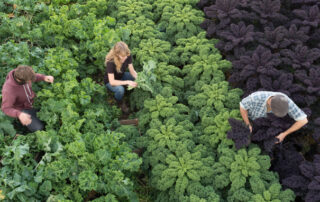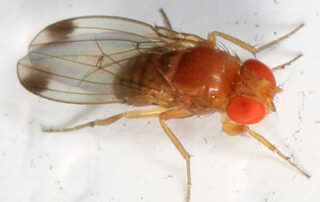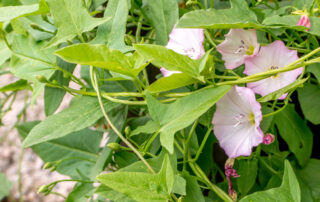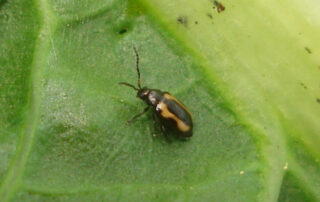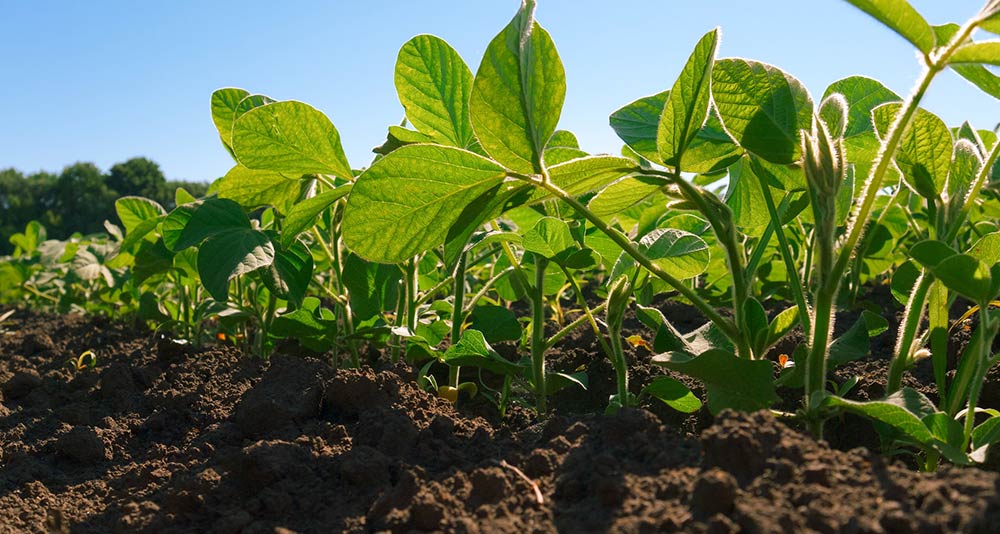OFRF’s New Online Course Will Give Organic Producers Strategies for Building Soil Health in the South
Course participants will also find resources for deeper dives into soil health topics, descriptions of the inherent properties of soil types commonly found in the South, and snapshots of the latest soil health research being conducted in the region
OFRF & FFAR Fund Research on Organic Farming System for BIPOC and Socially Disadvantaged Farmers
This farmer-led research project, Organic For All, is a participatory capacity building agricultural research and outreach project that will help identify needs, hindrances and barriers with BIPOC farmers and work together to develop solutions and resources through relevant learning sessions that provide education, hands-on training, and technical assistance.
OFRF co-hosts farm visit and attends Farm Bill Listening Session for Rep. Panetta, other Congressional Members.
On August 23, OFRF hosted our partners and Representative Panetta (CA-20) on a tour of Tablas Creek’s vineyard operations with Partner and General Manager Jason Hass and Jordan Lonborg, their viticulturist. After this farm tour, we all made our way to Paso Robles for a Farm Bill listening session with Representatives Carbajal, Costa, Lofgren, and Panetta with Rep. Costa chairing the meeting. This is one of many meetings like this happening across the United States, we encourage everyone to reach out to their congressional delegation to find opportunities like this [...]
The USDA Unveils the Organic Livestock and Poultry Standards Proposed Rule
The USDA unveiled the Organic Livestock and Poultry Standards (OLPS) Proposed Rule, with public comments on the rule open until October 11, 2022. OFRF is happy to see this significant step towards clarifying the animal welfare requirements associated with organic certification. In short, OLPS ensures that there are clear, robust standards for livestock production authorized under the Organic program. While this is an important step for animals being raised in organic systems, it is also important for consumers who want USDA organic certification to include significant animal welfare practices. Two [...]
OFRF Awards Two More 2021/22 Organic Research Grants Focused on Corn Crops, BIPOC Farmers
Organic Farming Research Foundation (OFRF), in partnership with the Foundation for Food and Agriculture (FFAR), is pleased to announce two more 2021-22 Organic Research grants, awarded to Axel Garcia y Garcia and Jennifer Taylor. These awards are the the last of six projects in OFRF’s current 2021-22 organic research grant cycle. Dr. Axel Garcia y Garcia, Associate Professor at University of Minnesota, aims to address Upper Midwestern organic grain growers' struggle with integrating cover crops into the corn aspect of their rotations. This project will evaluate various management factors including [...]
USDA Announces Organic Transition Initiative Investments
FOR IMMEDIATE RELEASE Funding toward Technical and Direct Farmer Assistance, Market Development (August 22, 2022) – Today, the U.S. Department of Agriculture (USDA) announced the initial details on a historic $300 million investment in the Organic Transition Initiative. As part of its Food System Transformation Framework, the USDA is taking important steps toward supporting both organically-certified farmers and ranchers and producers who wish to transition into organic production. Organic Farming Research Foundation (OFRF) has been working alongside policymakers and industry partners to advocate for this crucial investment that supports producers' [...]
OFRF Advocates for Climate Solution Investments in the Inflation Reduction Act, Senate Passes Bill
On August 7, 2022, the full Senate passed the Inflation Reduction Act of 2022, which will provide approximately $40 billion over the next ten years for climate change mitigation and resilience efforts through agriculture provisions. Organic Farming Research Foundation (OFRF) and a broad coalition of over 130 groups strongly recommended investment in climate solutions and conservation technical assistance in the bill to Senate Majority Leader Chuck Schumer and House Speaker Nancy Pelosi. OFRF further recommends immediate bill passage by the House to ensure agricultural producers can access USDA programs that [...]
Pest Management for Spotted Wing Drosophila
The Organic Farming Research Foundation 2022 National Organic Research Agenda (NORA) is a report informed by surveys and focus groups conducted in 2020 with over 1,100 certified organic farmers and ranchers across North America. What Farmers Said In the NORA report, 74% of survey respondents cited insect/pest management as a substantial technical assistance need. Specific feedback from organic farmers also underscores the need for additional research on managing pests such as spotted wing drosophila. Download OFRF's Pest Profile on Spotted Wing Drosophila (SWD). Watch the eOrganic Webinar on SWD featured [...]
Weed Management for Bindweed
The Organic Farming Research Foundation 2022 National Organic Research Agenda (NORA) is a report informed by surveys and focus groups conducted in 2020 with over 1,100 certified organic farmers and ranchers across North America. What Farmers Said In the NORA report, two-thirds of survey respondents (67%) cited weed management as a substantial production challenge. Specific feedback from organic farmers also underscores the need for additional research on controlling weeds such as bindweed. Knowing Your Weeds Farmers and researchers alike acknowledge that weeds pose the greatest barrier to building healthy soils [...]
Pest Management for Flea Beetle
The Organic Farming Research Foundation 2022 National Organic Research Agenda (NORA) is a report informed by surveys and focus groups conducted in 2020 with over 1,100 certified organic farmers and ranchers across North America. What Farmers Said In the NORA report, 74% of survey respondents cited insect/pest management as a substantial technical assistance need. Specific feedback from organic farmers also underscores the need for additional research on managing pests such as flea beetle. Download OFRF's Pest Profiles Brassica Loving Flea Beetle Solanaceae Loving Flea Beetle Know Your Pest Flea beetles [...]



